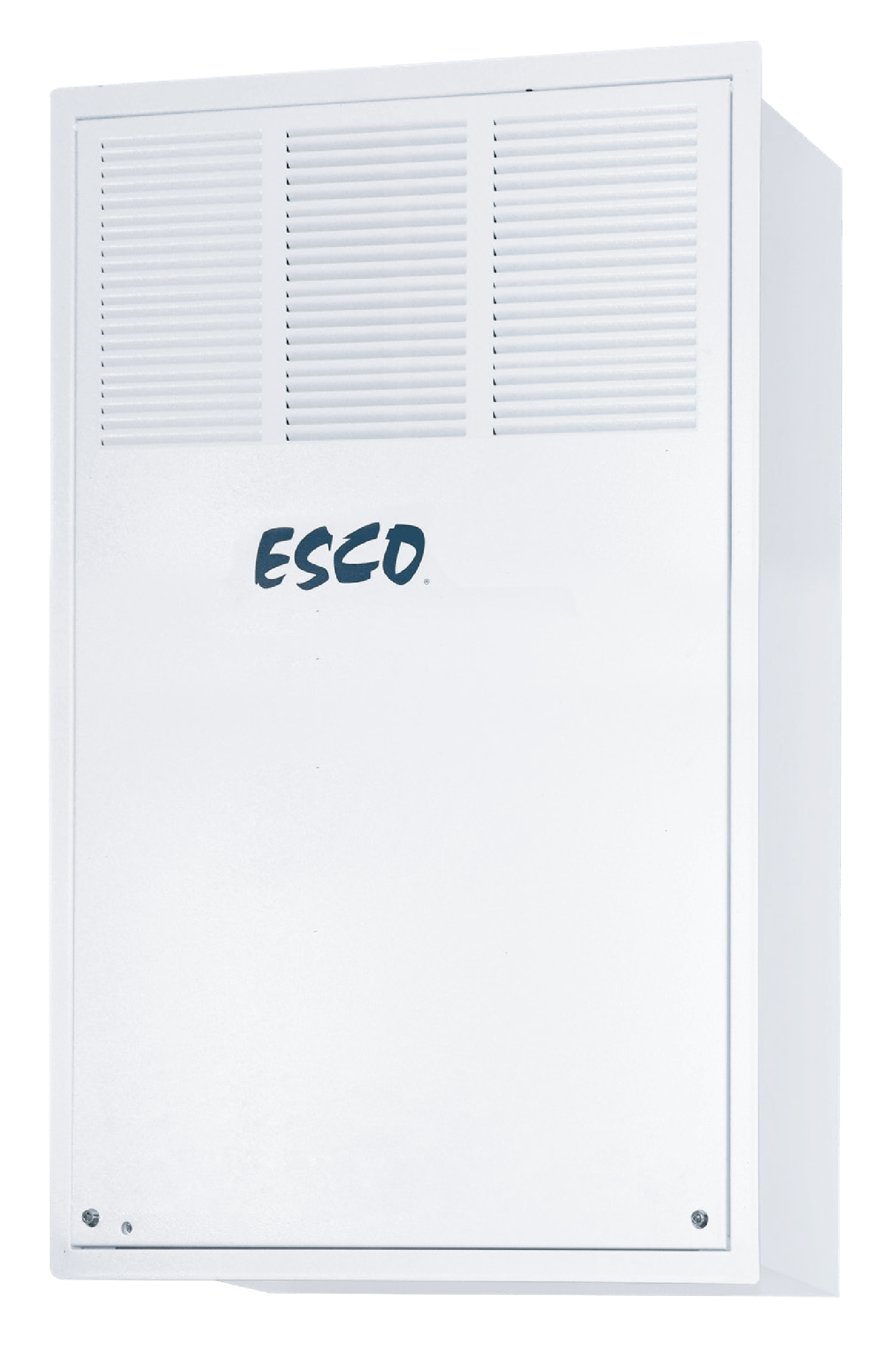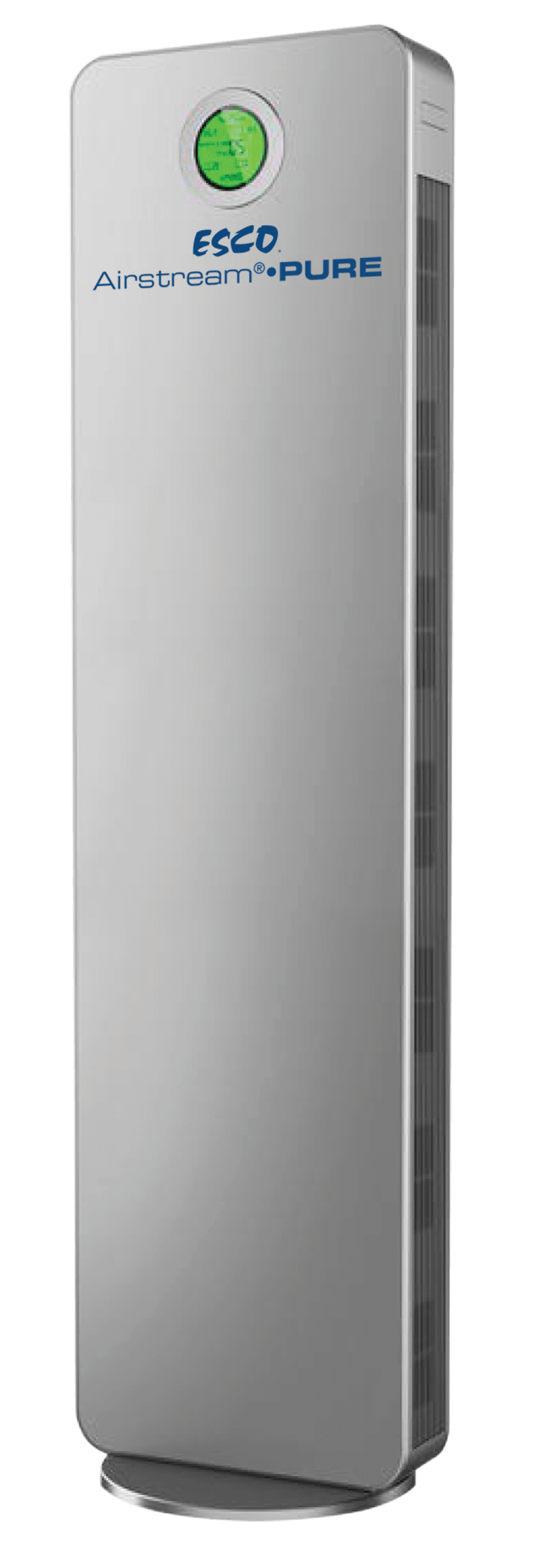Alleviating Allergic Rhinitis Through Air Purifiers
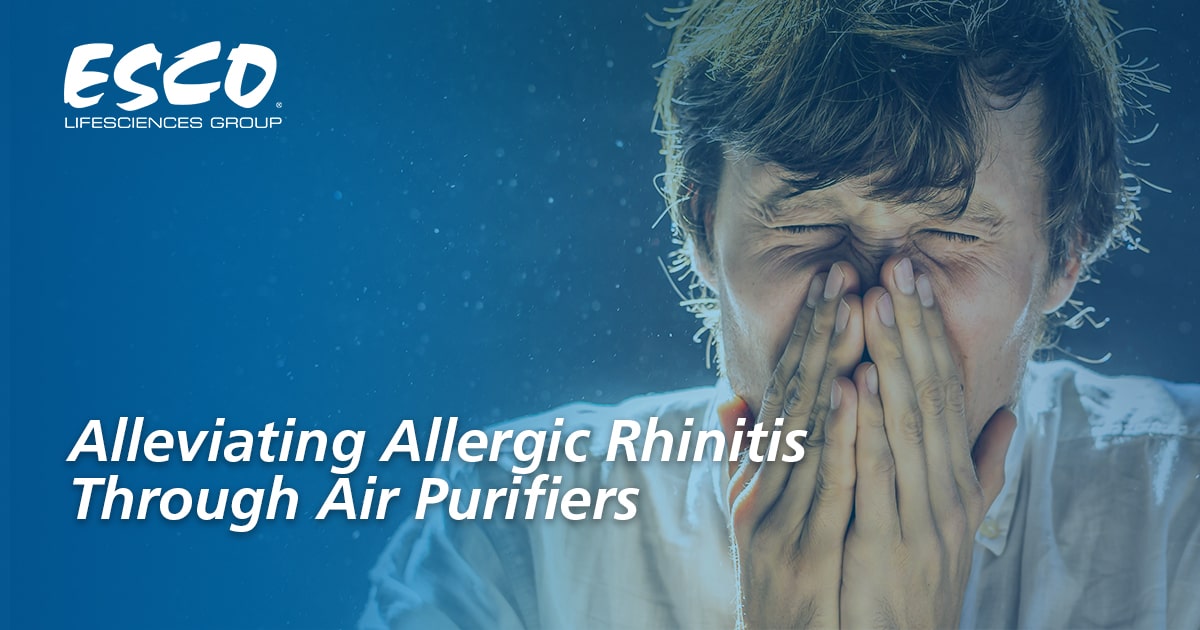
Various health concerns arise from exposure to indoor air pollutants. The effects may be immediate or may show up years after exposure. Due to the ongoing pandemic, a lot of people spend most of their time indoors, thus making indoor air quality more important. Air pollutants can enter and accumulate inside rooms without adequate ventilation. When left unaddressed, these pollutants can build up and become a problem, causing allergic reactions such as runny nose and sneezing. Considering the possible problems caused by the increased time we spend indoors, it is high time for us to ponder upon the importance of indoor air quality.
What are allergies?
Allergies are the immune system’s response towards foreign substances to your body. These foreign substances are called allergens and are not necessarily harmful but can be very irritating. There are different types of allergies caused by various allergens such as particulate matter, pollen, and spores that can be found in the air. These can irritate your skin and nose, possibly causing itchiness and allergic rhinitis.
Symptoms of Rhinitis
- Eyes and nose itchiness
- Stuffy or runny nose
- Sneezing
- Phlegm in throat

Allergic rhinitis is an allergic reaction to airborne allergens and affects 10 to 30 percent of children and adults in the United States and other industrialized countries. It is triggered when dust, pollen, and animal dander are inhaled. Dust mites can also cause an allergic response from the chemicals they excrete. These allergens cause the body to produce histamine, which increases the blood flow in the affected area. It then causes inflammation and allows the immune system to respond accordingly. As a defense mechanism, mucus and phlegm are produced to trap and prevent foreign substances from entering the respiratory system. This results in a runny or stuffy nose and sneezing. Depending on the severity of the allergy, these symptoms can be tolerable and nothing to worry about or can be very irritating and distracting. Long-term exposure can cause headaches and fatigue making it difficult to work and focus.
How to manage allergic rhinitis?
Upon experiencing symptoms of allergic rhinitis, the usual response is to take antihistamine medicines or use nasal sprays to relieve the irritation and stuffy nose. Although these treatments are effective for mild conditions, the best way to manage allergies is through prevention. Keeping your environment free of allergens is the most ideal solution.
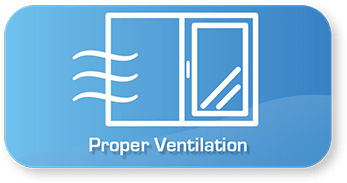
Since these allergens can easily travel through the air and build up in an environment with enclosed spaces such as bedrooms and offices, proper ventilation and airflow are essential factors to improve indoor air quality. Having a good ventilation system stops allergens from accumulating in rooms.
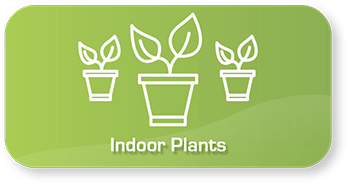
Another effective solution to improve air quality is the addition of plants indoors. Plants are natural air purifiers that can increase the O2 levels and remove toxins in rooms.

At present, thanks to scientific innovations we can now use air purifier devices to clean air. They employ filtration technology to remove indoor pollutants and even sterilize air to improve air quality a step higher.
Introducing Esco Lifesciences Air Purification Technologies
Filter Features:
- HEPA filter captures particles of 0.3 microns at 99.99% efficiency
- Carbon filter removes VOCs, fumes, and other unwanted odors
Esco Lifesciences offers solutions for air purification with the Esco Ceiling Air Purifier and Airstream® PURE Air Purifier. These air purifiers are designed to remove indoor pollutants that can trigger allergic rhinitis. Both devices are equipped with an effective filtration system utilizing HEPA filters and carbon filters. According to the research of Jia-ying et al. (2018) and Park et al. (2020), HEPA filters greatly reduce the particulate matter concentrations of indoor air and significantly increases the overall air quality. In addition to filtering the air, Esco Lifesciences’ purifiers also disinfect and sterilize to produce cleaner air. They also provide airflow, preventing the build-up of pollutants and as a result, allergen concentration in the air is reduced.
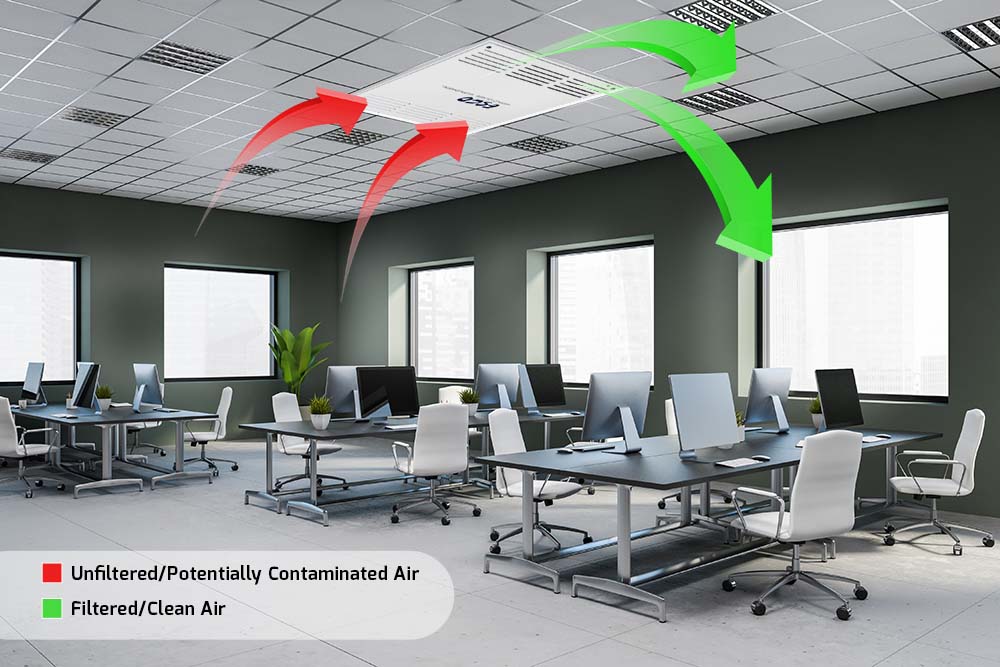
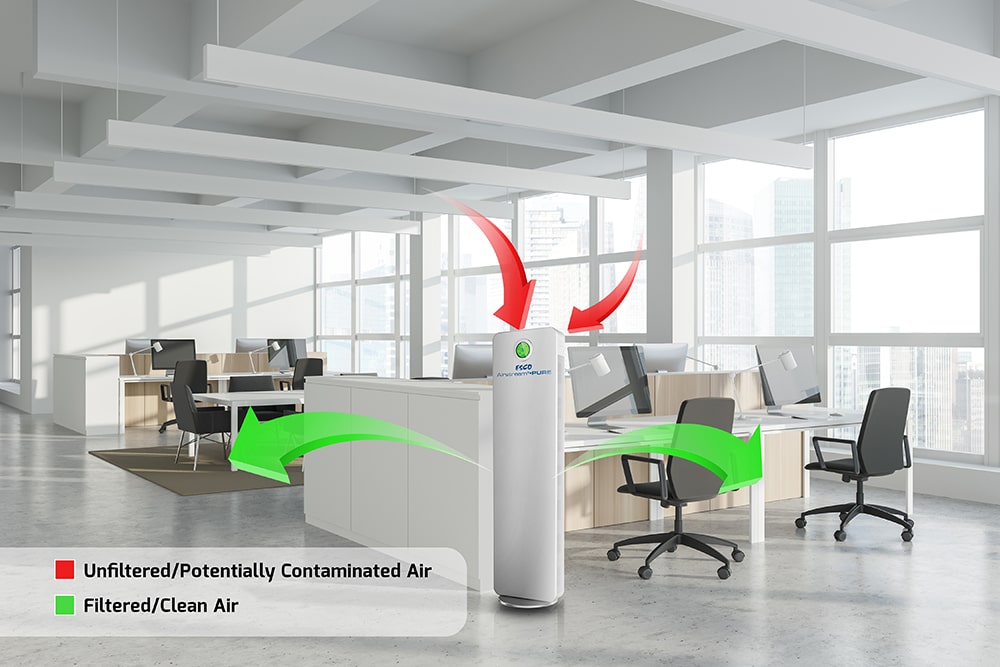
Airflow illustration inside an office with Esco Ceiling Air Purifier and Airstream® PURE Air Purifier
Esco Lifesciences’ Air Purification Technologies are intuitive and engineered to provide better quality air for a healthier environment.
References:
[1] Asthma and Allergy Foundation of America. (n. d.). Rhinitis (Nasal Allergies). https://www.aafa.org/rhinitis-nasal-allergy-hayfever/
[2] Cherney, K. (2019). Do Air Purifiers Actually Work? https://www.healthline.com/health/allergies/do-air-purifiers-work#how-they-work
[3] deShazo, R. D., and Kemp, S. F. (2020). Allergic rhinitis: Clinical manifestations, epidemiology, and diagnosis. https://www.uptodate.com/contents/allergic-rhinitis-clinical-manifestations-epidemiology-and-diagnosis
[4] Environmental Protection Agency. (n. d.). Introduction to Indoor Air Quality. https://www.epa.gov/indoor-air-quality-iaq/introduction-indoor-air-quality
[5] Fowler, P. (2020). What Are Histamines? https://www.webmd.com/allergies/what-are-histamines
[6] Jia-ying, L., et al. (2018). Efficacy of air purifier therapy in allergic rhinitis. Asian Pacific Journal of Allergy and Immunology. https://doi.org/10.12932/ap-010717-0109
[7] Moore, K. (2019). Allergic Rhinitis. https://www.healthline.com/health/allergic-rhinitis#symptoms
[8] NHS. (n. d.). Allergic rhinitis. https://www.nhs.uk/conditions/allergic-rhinitis/causes/
[9] Park, K. H., et al. (2020). Effects of Air Purifiers on Patients with Allergic Rhinitis: A Multicenter, Randomized, Double-Blind, and Placebo-Controlled Study. Yonsei Medical Journal, 61(8), 689. https://doi.org/10.3349/ymj.2020.61.8.689
[10] Silver, N. (2021). Which Air Purifiers Work Best for Allergies? https://www.healthline.com/health/air-purifier-for-allergies
